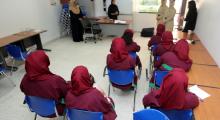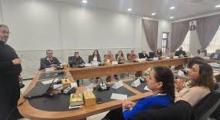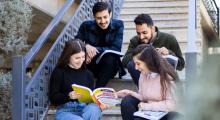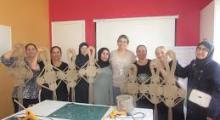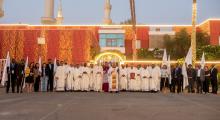Issued by the Catholic Center for Studies and Media - Jordan. Editor-in-chief Fr. Rif'at Bader - موقع أبونا abouna.org
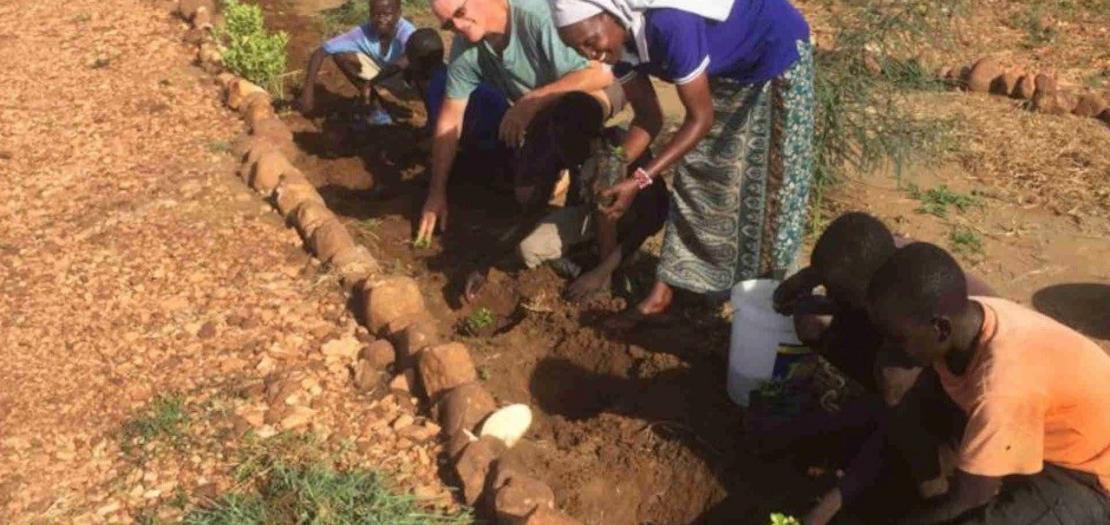
“So what they all need is an ‘ecological conversion’, whereby the effects of their encounter with Jesus Christ become evident in their relationship with the world around them. Living our vocation to be protectors of God’s handiwork is essential to a life of virtue; it is not an optional or a secondary aspect of our Christian experience” (LS 217).
For years, Fr. Tim Galvin, a missionary priest serving in Riwoto, South Sudan, hadn’t experienced the ecological conversion that Pope Francis highlights in Laudato si’. Decades ago, he was a devout Catholic priest with the St. Patrick’s Missionary Society, focused on serving his people and God the Father.
But a handful of years ago, Fr. Galvin began to see more and more news about the climate crisis. His conscience was alerted. The pain that God’s Creation and all species throughout the world were enduring became too much for Fr. Galvin.
“We are in a crisis. One night, you watch the news, the Arctic is melting. Another night you watch the news, and California is burning, Australia is burning,” he said.
Fr. Galvin felt the same God who called him to be a missionary priest in 1978 in Ireland calling him to care for our common home and lead the people of Riwoto, South Sudan, despite the fact that the cry of the earth and the cry of the poor can be heard too often in South Sudan.
Hope in place of despair
But where others have found despair, Fr. Galvin has found hope. With the help of the people of Riwoto, he has experienced a transformation that he - nor anyone - could have predicted.
“It’s very, very helpless looking,” Fr. Galvin said of the climate emergency and biodiversity crisis. “But Laudato si’ is giving us a blueprint of how we can change and protect Creation.”
Hearing the cry of the Earth and the poor
Fr. Galvin, 69, has been a Catholic priest for 44 years and has long been aware of the role that caring for God’s Creation plays in Catholic Social Teaching.
But it wasn’t until 2017, a couple of years after Pope Francis finished writing Laudato si’, until Fr. Galvin and other missionaries in South Sudan and Kenya came together to study the encyclical. In 2020, as the Covid-19 pandemic shut down the world, Fr. Galvin committed to more studies of Laudato si’ by becoming a Laudato si’ Animator.
The free training helped him better understand the root causes of the climate crisis and the core messages of Laudato si’, especially how Creation is to be contemplated and how all of us must turn the pain of what’s happening in the world “into our own personal suffering and thus to discover what each of us can do about it” (LS 19).
“Pope Francis talks about Mother Earth. St. Francis talked about it also. ‘Praise to my Lord God, through Mother Earth,’” Fr. Galvin said, quoting St. Francis’ “Canticle of the Sun.”
“I wouldn’t have said that a few years ago, but I would say it now. Maybe I’ve come to understand how we are so dependent on Earth, for everything, food, medicines.”
The Laudato si’ Animators course also helped Fr. Galvin comprehend the injustice of the climate crisis: how the people who are suffering its worst effects have had the least to do with the heat-trapping greenhouse gas emissions scientists say are causing the crisis.
“It’s the cry of the Earth and the cry of the poor,” Fr. Galvin said, quoting Laudato si’.
'There is a wisdom here'
Fr. Galvin has also learned from the people he lives and works with every day, the people of Riwoto. Almost all of them lack a formal education, but Fr. Galvin remains in awe of their knowledge of God’s Creation and their commitment to nurturing our common home.
They point out how “alibakonyen,” a creeper-like plant with gray heads, can heal jaundice, and how black-jack is a source of iodine that can help heal your cuts.
“There is a wisdom here already in traditional society. We are partners of the environment. They know their environment more than I know my environment in Ireland,” he said. “They’re dependent on nature… and they know it.”
South Sudan's journey
This hopeful transformation has come amidst death and destruction. Sudan was engulfed in a 22-year civil war that ended in 2005. Nearly 2.5 million people were killed and another four million displaced.
South Sudan gained its independence in 2011, but two years later, the new country spiralled into six years of fighting that killed more than 400,000 people. Local people still lack basic needs, such as electricity. They have to chop down trees for firewood to burn charcoal and provide for their families.
Yet the community of Riwoto remains hopeful. With Laudato si’ as their guide, they work for a better future and cherish their closeness to God and all creation.
“This is the work of the Church,” said Joseph Loyda, 51, who manages the watering and planting of local fruit trees, including tamarind, paw paw, and mango, nyeronit, and nyebei in Riwoto. “This is really the work of God.”
Galvin’s story of caring for God’s creation is emblematic of the types of stories that are on display during Laudato si’ Week throughout the world.


